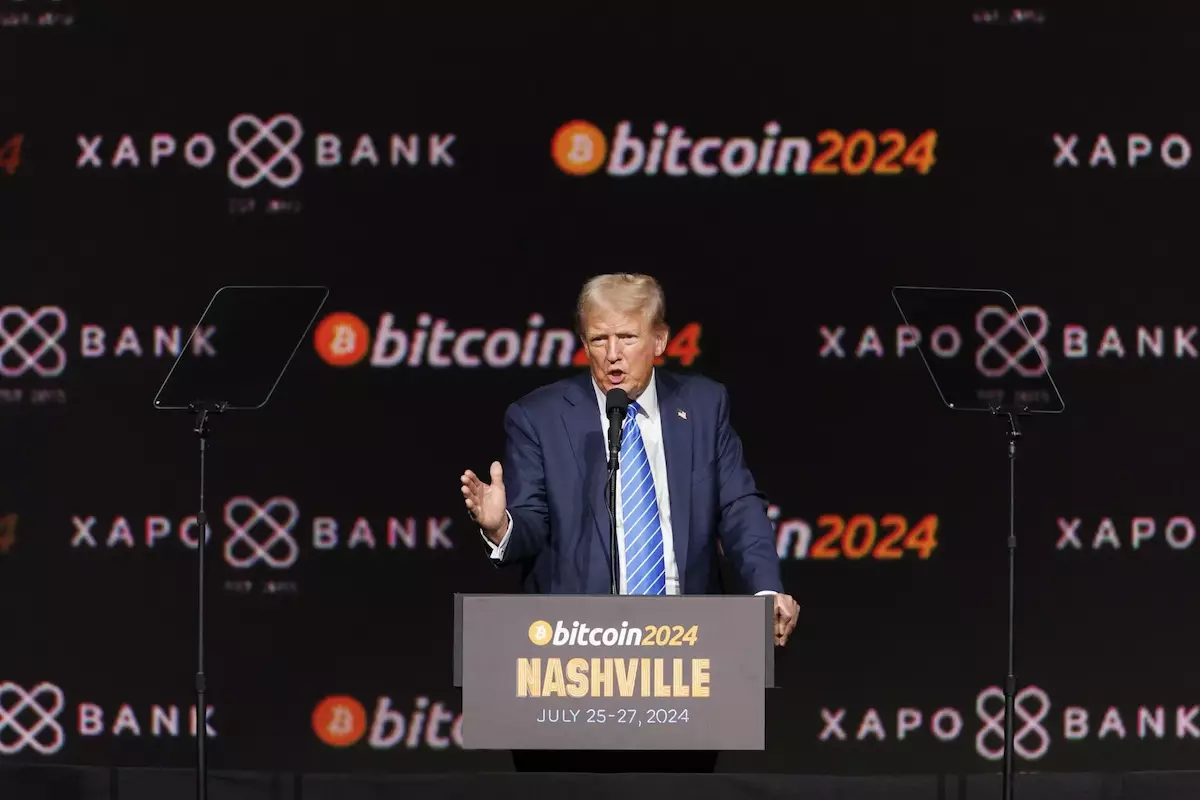Web3 gaming stands at the crossroads of technological innovation and regulatory evolution, prompting stakeholders in this domain to critically assess the implications of political changes. The landscape of digital assets and blockchain technology has been marked by volatility and uncertainty, especially influenced by the changing political climate in the United States. With Donald Trump’s potential return to power, the implications for Web3 gaming could be profound, marking a decisive shift toward a more crypto-friendly environment.
A Shifting Perspective on Digital Assets
Historically, Donald Trump has had a tumultuous relationship with cryptocurrency. Initially, he labeled Bitcoin a “scam” and expressed concerns about its potential to disrupt the US dollar, reflecting a perspective common among traditional financial institutions at the time. However, in a rapidly evolving digital economy, Trump’s views appear to have undergone a transformation. His administration seems poised to embrace the emerging blockchain paradigm, aligning with the increasing global acceptance of cryptocurrencies and the integration of blockchain technology in various industries.
This shift suggests that Trump may adopt policies that could ease restrictions on digital assets, bolstering innovation in Web3 gaming. The realm of online gaming fundamentally relies on tokenized economies, utilizing digital assets not just for gameplay but also for community-building and creating ownership stakes in virtual worlds. Support from the regulatory front could pave the way for developers to explore uncharted territories without the daunting fear of legal repercussions.
The Trajectory of the Crypto Market During Trump’s First Term
A look back at the performance of the cryptocurrency market during Trump’s initial presidency provides insight into how his policies could influence future outcomes. The upward trend observed in 2017, where Bitcoin ascended from approximately $1,000 to nearly $20,000, and Ethereum followed a similar trajectory, played a crucial role in placing cryptocurrencies on the global economic map. Despite the significant correction in 2018, the market showed resilience, hinting at the dynamic and unpredictable nature of this new financial frontier.
As Trump navigates his potential second term, the historical context reveals that under his leadership, the market did experience growth—albeit alongside corrections. If he adopts a more supportive stance toward cryptocurrencies, a similar growth trajectory could be anticipated for Web3 gaming. Such growth could attract significant investment and encourage a plethora of new ventures focused on decentralized gaming platforms.
The role of the Securities and Exchange Commission (SEC) in shaping the regulatory environment cannot be overstated, particularly for an emerging sector like Web3 gaming. Trump’s criticism of current SEC Chair Gary Gensler signals a potential pivot in regulatory oversight. Should Trump follow through on intentions to replace Gensler with a more crypto-aligned leader, Web3 gaming could benefit tremendously. The resultant decrease in regulatory hurdles would facilitate easier token issuance and trading, opening the floodgates for investment.
Furthermore, a supportive SEC could enhance the legitimacy of in-game assets and encourage traditional gaming companies to delve into blockchain technology. The confluence of these factors could legitimize Web3 gaming, attracting larger investors and broadening the user base. Greater investor confidence in this emerging sector may also lead to innovative collaborations between established gaming companies and blockchain developers, thereby expanding the horizons of Web3 gaming.
U.S. crypto policy has a knack for influencing global trends, as other nations often take cues from American legislative behavior. If a Trump-led administration successfully cultivates a friendly regulatory atmosphere for blockchain technology, it could solidify the United States’ position as a global leader in digital innovation. This shift may prompt other countries to adjust their regulatory frameworks accordingly, resulting in heightened international collaboration in Web3 gaming.
International partnerships could facilitate knowledge exchange, development of shared platforms, and the establishment of consistent gaming regulations across jurisdictions. This collaborative climate is essential in propelling Web3 gaming into mainstream acceptance, a goal that is critical for many developers and entrepreneurs in this space.
A potential return of Donald Trump to the presidency could herald a new era for Web3 gaming and the broader blockchain ecosystem. With his administration’s potential shift toward accommodating crypto regulations, developers and investors might find themselves in a more nurturing environment conducive to innovation and growth. The effects of a supportive SEC could further legitimize the sector and catalyze investment, making Web3 gaming a more prominent player in the entertainment industry. As the global landscape adjusts to these changes, the prospects for Web3 gaming appear increasingly optimistic, signaling an era of significant transformation driven by political and regulatory advancements.








